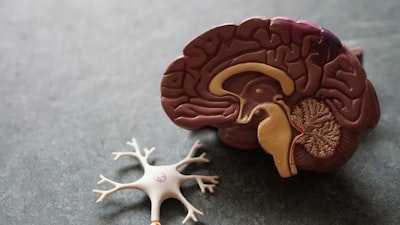Interacting with difficult people
When dealing with difficult people, the amygdala in the brain, responsible for processing emotions, perceives them as a threat. This triggers the fight-or-flight response.
We either try to fight the behavior or flee from the situation without solving the problem. The interaction can release stress hormones that lead to a pounding heart, tense muscles, and anxiety. It can also drain us of energy and lead to overthinking.
336
1.39K reads
CURATED FROM
IDEAS CURATED BY
The idea is part of this collection:
Learn more about communication with this collection
How to challenge assumptions
How to generate new ideas
How to break out of traditional thinking patterns
Related collections
Similar ideas to Interacting with difficult people
Our brain when we're afraid
A perceived threat sends information to the brain's emotional processing and learning center, called the amygdala. The amygdala sorts out the data within tens or hundreds of milliseconds. If it registers the threat, then it fires off a series of physical changes. Heart rate, breathing, and swe...
What happens during the fight or flight response
In response to acute stress, the body's sympathetic nervous system is activated by the sudden release of hormones.
- After the threat is gone, it takes between 20 to 60 minutes for the body to return to its pre-arousal levels.
Physical signs...
Depression Starts with Immobilization
Our autonomic nervous system is constantly scanning our internal and external environment for signs of danger. If it detects a threat, its next strategy is the fight or flight response which we often feel as anxiety.
Sometimes the threat is so bad or goes on for so long, that the nervous ...
Read & Learn
20x Faster
without
deepstash
with
deepstash
with
deepstash
Personalized microlearning
—
100+ Learning Journeys
—
Access to 200,000+ ideas
—
Access to the mobile app
—
Unlimited idea saving
—
—
Unlimited history
—
—
Unlimited listening to ideas
—
—
Downloading & offline access
—
—
Supercharge your mind with one idea per day
Enter your email and spend 1 minute every day to learn something new.
I agree to receive email updates

